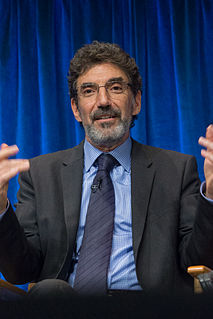A Quote by Emily Giffin
Buried beneath disappointment and fear, anger and pride, I just might find it in my heart to forgive.
Related Quotes
Scratch the surface of any cynic, and you will find a wounded idealist underneath. Because of previous pain or disappointment, cynics make their conclusions about life before the questions have even been asked. This means that beyond just seeing what is wrong with the world, cynics lack the courage to do something about it. The dynamic beneath cynicism is a fear of accepting responsibility.
I am sorry," I whispered. "I am sorry for all of the ways that I failed you. I am sorry that I was not there to save you, or to die alongside you. I am sorry that I have kept you with me for so long, trapped in my heart, bound in sorrow and remorse. I forgive you too. I forgive you for leaving me, and I forgive you for returning. I forgive you your anger, and your grief. Let this be an end to it.
No matter what you are dealing with in life, be it resentment or regret, bitterness or sadness, anger or apathy, hatred or hesitation, depression or disempowerment, disappointment or other destructive anxieties, painful envy or emotional turmoil, fear of isolation or thoughts of failure, keep in mind that if you are positive, positivity will find you and embrace you!
I believe that the voices of fear, both from without and within, can only be dispelled by trusting the voice that comes from the heart. Be still and listen to it. If it speaks of love and compassion for others, for the world itself, it just might be the voice of God - or a reasonable facsimile. If, however, it snarls with fear of the unknown, fear of losing what you have or of not getting what you want, then it just might be the voice of Rupert Murdoch - or a reasonable facsimile.
What is forgiving? Forgiving is giving up all claim on one who had hurt you and letting go of the emotional consequences of the hurt. How can we do that? It's done at the price of beating back our pride. By nature we are selfish. Forgiving, by definition, is unselfish. Being hurt by another person wounds our pride. Pride stands in the way of forgiving. We cannot forgive without God's help. It might be possible for us to forgive something inconsequential without God's help; but in significant matters, we are unlikely to accomplish anything without God's involvement in the process.
Holding anger is a poison. It eats you from the inside. We think that hating is a weapon that attacks the person who harmed us. But hatred is a curved blade. And the harm we do, we do to ourselves. Forgive, Edward. Forgive...no one is born with anger. And when we die, the soul is freed of it. But now, here, in order to move on, you must understand why you felt what you did, and why you no longer need to feel it.' She touched his hand. 'You need to forgive your father.' ~pgs 141-142
When we refuse to work with our disappointment, we break the Precepts: rather than experience the disappointment, we resort to anger, greed, gossip, criticism. Yet it's the moment of being that disappointment which is fruitful; and, if we are not willing to do that, at least we should notice that we are not willing. The moment of disappointment in life is an incomparable gift that we receive many times a day if we're alert. This gift is always present in anyone's life, that moment when 'It's not the way I want it!
Anger is a response that can lead to harm if we don't evaluate what we are upset about. Ask yourself what you are afraid of, as anger is almost always fear in disguise. If we think something or someone threatens us, we feel fear-fear that we are inadequate, that our lives are out of control, that things won't go our way. Then we fight. Find out what you're upset about. We rarely are upset for the reason we think.



































